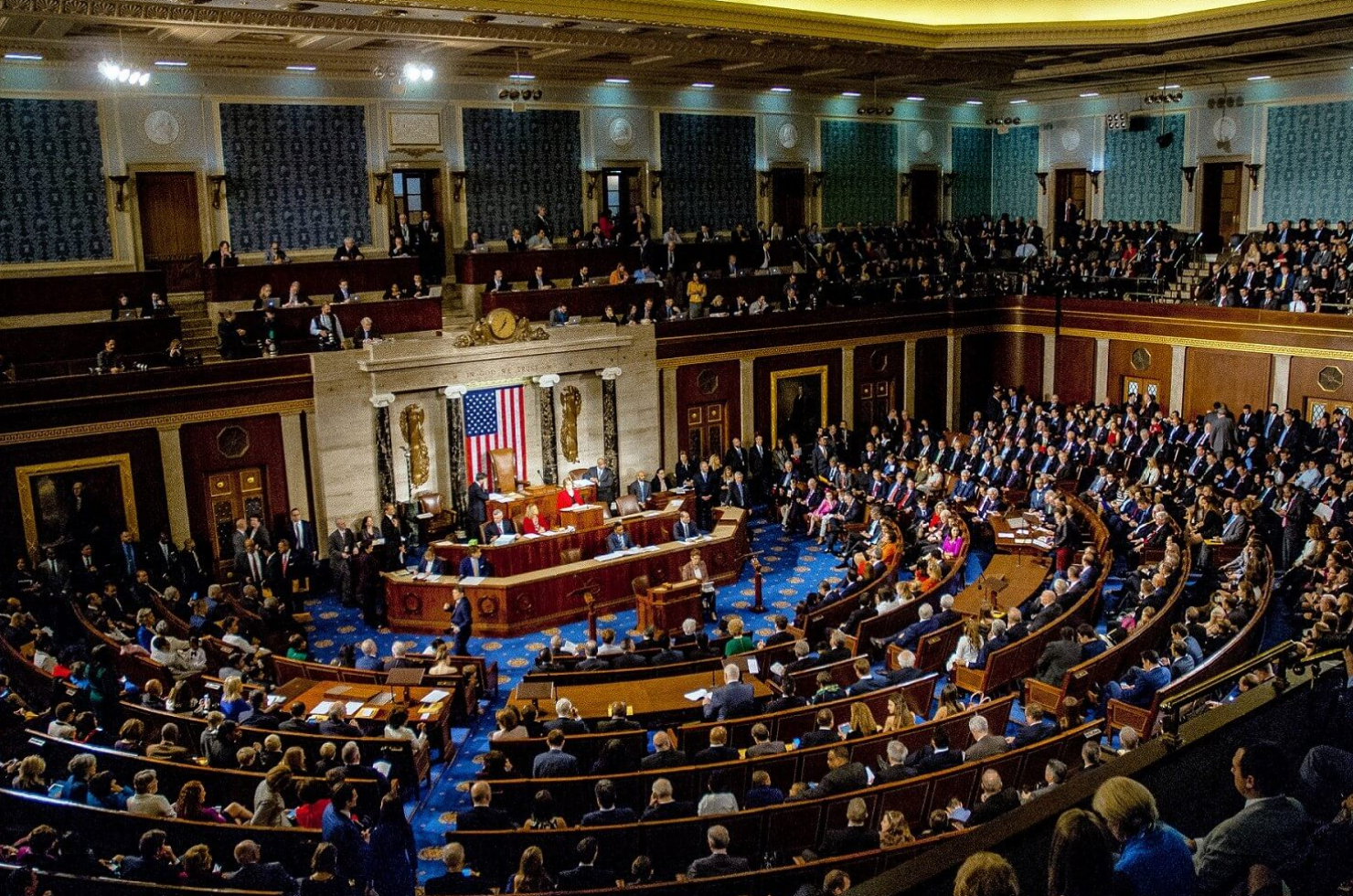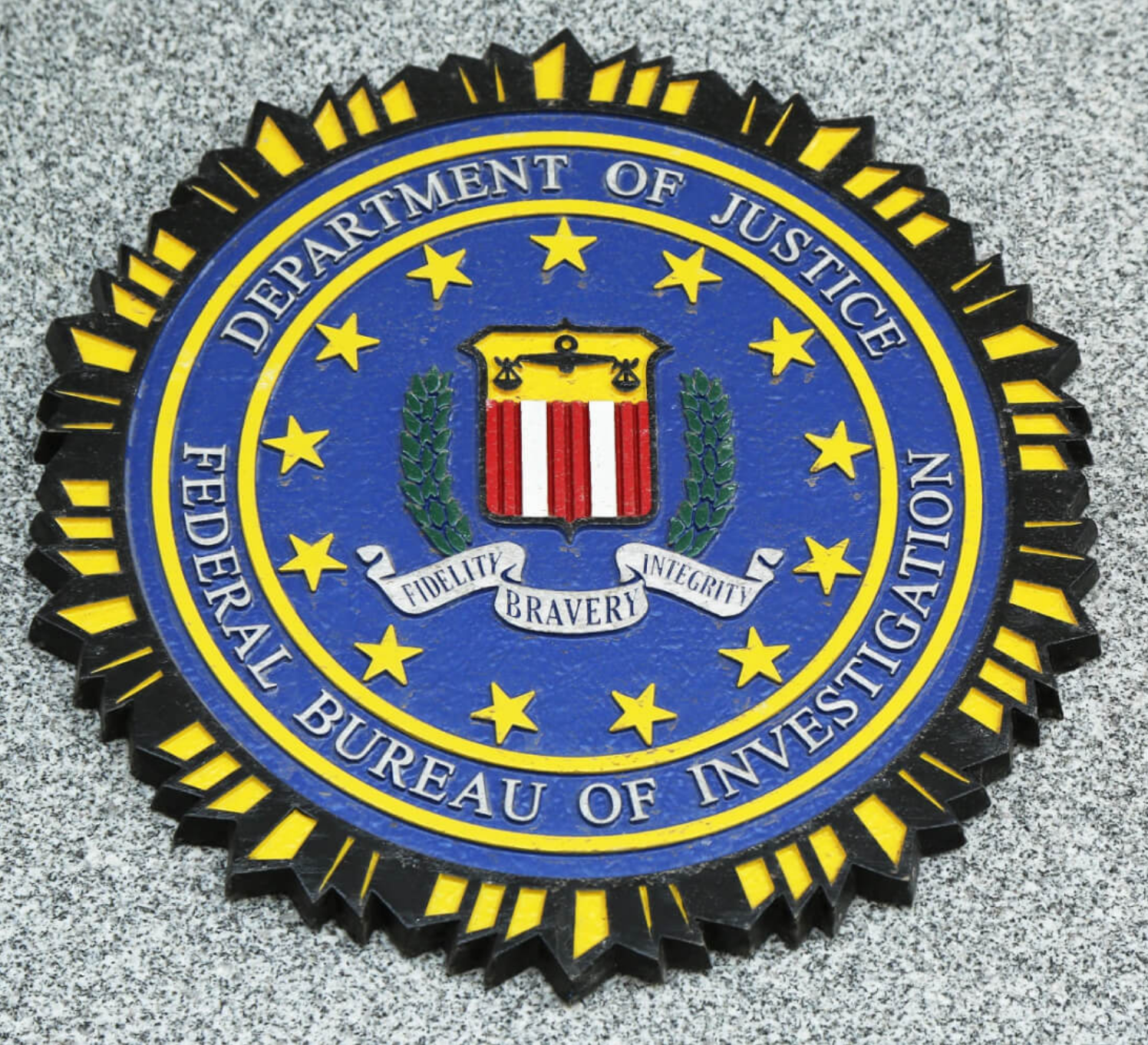Senate Vote Allows FBI Access To Your Browsing History Without A Warrant And What You Can Do About It
Why It Matters: The US has just voted to allow the FBI and other security agencies to access American citizens’ web histories without requiring a warrant. Senate Vote Allows FBI Access To Your Browsing History Without A Warrant And What You Can Do About It
Senators Ron Wyden (D-OR) and Steve Daines (R-MT) were trying to install privacy protections into the Patriot Act, but the amendment failed to pass by a single vote.
The Patriot act (Providing Appropriate Tools Required to Intercept and Obstruct Terrorism act) is a controversial piece of legislation that was made into law following the September 11 attacks. It gives law enforcement extra powers of surveillance, including record and private property searchers without notifying the individuals.
Solutions Including VPNs And Privacy-Based Browsers:
Online Privacy Tools and Tips
As reported by The Register, an addition to the Patriot Act, which is due to be renewed this week, would allow agencies to collect people’s browsing histories without requiring a warrant.
Wyden and Daines led the charge in trying to prevent the Patriot act changes by installing a warrant requirement, but the bipartisan amendment fell short of the 60-vote threshold by one vote, with many of those who were likely to vote in favor, including former presidential candidate Bernie Sanders, absent.
“Is it right at this unique time when millions of law-abiding citizens are at home, for the government to be able to spy on their internet searches and web browsing without a warrant?” said Wyden.
“Should law-abiding Americans have to worry about their government looking over their shoulders from the moment they wake up in the morning and turn on their computers to when they go to bed at night? I believe the answer is no. But that’s exactly what the government has the power to do without our amendment.”
The addition to the Patriot act was drafted by Senate leader Mitch McConnell. Not only does it allow the collection of search and browsing data in section 215 of the law without probable cause, but that data is also likely to be stored and made available to multiple US agencies.
With Covid-19 causing millions of Americans to use the internet more than ever, the vote has come as a blow to privacy advocates.
“The Patriot Act should be repealed in its entirety, set on fire and buried in the ground,” Evan Greer, the deputy director of Fight For The Future, told Motherboard. “It’s one of the worst laws passed in the last century, and there is zero evidence that the mass surveillance programs it enables have ever saved a single human life.”
The US Senate yesterday voted – by a single vote – to allow government agencies like the FBI and CIA to access your browsing history without a warrant.
This means they would not need to show probable cause for believing you have committed a crime before requiring your ISP to hand over its records on your web browsing and search histories …
The Senate is being asked to reauthorize the Patriot Act, which gives government agencies powers to carry out mass electronic surveillance of US citizens. Three amendments were put forward, one of which would have prevented accessing web browsing history without a warrant.
Engadget reports that the privacy amendment came up one vote short, and therefore failed.
The ACLU urged Congress members to add three specific amendments that would limit it if they reauthorize its powers.
One, from Senators Steve Daines and Ron Wyden would have prohibited the warrantless collection of search or browser histories. Senators voted on that Wednesday afternoon, but it failed to pass, coming one yes vote short of the required 60, with several senators including Ben Sasse and Bernie Sanders not voting.
A Politico reporter noted that, according to an aide, Washington senator Patty Murray would have voted yes, but was still flying back to D.C. when the votes were cast.
Use of a VPN provides protection against this kind of surveillance, as it means your ISP would have no way to know which websites you visited.
There Was Some Good News: A second amendment did pass, which allows judges ruling on Foreign Intelligence Surveillance Act (FISA) requests to seek input from independent experts.
The amendment senators did pass, by a 77-19 margin, was introduced by Patrick Leahy (D, Vermont) and Mike Lee (R, Utah). As described by the ACLU, it “strengthens the role of independent “friends of the court” to the Foreign Intelligence Surveillance Court, ensuring that the court has additional opportunities to hear the views of outside experts.”
In an op-ed published Sunday seeking support for the measures, the senators said “The key to our proposal is to substantially strengthen a program that currently allows FISA judges, in very limited circumstances, to appoint outside legal scholars — called “amici”— to independently analyze FBI surveillance requests that are particularly sensitive…We propose measures that would authorize and actively encourage judges in this secret court to seek independent amicus reviews in all sensitive cases — such as those involving significant First Amendment issues — thereby adding a layer of protection for those who will likely never know they have been targeted for secret surveillance.”
A third amendment, requiring warrants to carry out FISA searches on US citizens, is due to be voted on today.
Can The FBI Access Your Browser History If You Use A VPN?
As many of you are aware, the US Senate recently passed a bill to extend elements of the Patriot Act. Notably, this legislation included parts that would increase the FBI and CIA’s ability to legally access your browser search history without a warrant.
Many organizations, including the ACLU, pushed for an amendment to this bill that would protect the internet privacy of American citizens. However, as of May 15, 2020, these amendments failed to pass. Since other amendments were made to the bill, it is currently being passed to the House of Representatives for another vote before being potentially signed into law.
This Has Some People Wondering, “Can A VPN Protect Me From The FBI Accessing My Browsing History?”
Before we dive in, I think it’s important to address the elephant in the room. This is not a sponsored article. It does, however, contain affiliate links that give Android Authority a cut of profits if you choose to make a purchase through them. If you decide to pick up a VPN here, then you’ll be getting a quality VPN service while also helping us keep the lights on.
So, Will A VPN Protect You From The FBI?
The Short Answer Is, Not Necessarily
When law enforcement acquires browsing history, with or without a warrant, their first stop is your internet service provider. Your ISP can see all the sites you visit and it keeps a log of your traffic for just this purpose. However, using a VPN prevents this.
Although browsing with a VPN prevents your ISP from tracking your movements, your ISP may not be the FBI’s only stop on their investigation. They may also track down and request logs from your VPN provider.
Many VPNs claim to keep no logs, but numerous court cases have demonstrated that this is not always the truth. If you’re using a VPN, it’s important to do go with one that you trust. In the end, just using a VPN only shifts your vulnerability from your ISP to your VPN provider.
Multiple Protective Measures
Experts such as Edward Snowden advocate for multiple actively managed lines of defense for true internet security. One of the best tools at your disposal to use in addition to a VPN is the Tor Browser.
Tor is a system that routes all of your web traffic through random, publicly listed entry nodes. It anonymizes your behavior by bouncing your traffic through multiple relays and mixing it with other users. This makes your actual chain of behavior essentially impossible to follow.
For maximum privacy, your best bet is to use a VPN and a secure browser such as Tor. This does, however, come at the cost of significantly reduced speeds.
Make Good Decisions
The age-old argument that’s often trotted out when government power is expanded to trespass on individual privacy is this: “If you haven’t done anything wrong, you don’t have anything to fear.”
While the concept is sound enough in theory, it’s all too often used to make authoritarian measures taste a bit more palatable. It insinuates that anyone concerned with digital privacy is only concerned about it because they have something to hide.
In my view, this is a cowardly position that kowtows to authority and demonstrates a clear ignorance about the ways in which power has frequently been misused throughout history for personal and political motives. You’re free, of course, to disagree. You have individual rights, after all.
That said, don’t be stupid. If you go on the internet to break the law, you’re taking risks no matter how well you try to protect yourself. Don’t lean on a VPN to try to get away with things you know you shouldn’t be doing anyway.
Can The FBI Access My Browsing History?
The kind of websites a person visits can tell you a lot about them. For instance, if someone is visiting ISIL message boards or googling bomb recipes, that might indicate future criminal behavior. And of course federal law enforcement would like as much access as possible to information that might help them prevent or solve crimes. So does that mean they can access your internet browsing history?
Currently, the Federal Bureau of Investigation needs a warrant to view your web activity, but the agency is pushing for an amendment that would allow it to access your internet browsing history without a warrant in terrorism and spy cases.
Letters of Security
The change has to do with the FBI’s use of National Security Letters, or NSLs, when conducting investigations. NSLs don’t require court orders, therefore there is no warrant and no judicial determination of probable cause for the information the agency is seeking. Furthermore, most NSLs come with a gag order attached, prohibiting the person or entity subject to the request from even disclosing that it has received an NSL.
As it stands now, the FBI can only access four types of basic subscriber information from internet companies using an NSL: your name, address, length of service, and telephone bill records. The FBI considers this limitation a “typo,” and contends the bureau should be able to obtain “electronic communication transactional records,” including include a person’s internet protocol address, which websites she is visiting, and how much time she spends on a given site. FBI Director James B. Comey told Congress the current limitation “affects our work in a very, very big and practical way.”
To Warrant, Or Not To Warrant
But privacy advocates disagree, saying the change would “dramatically expand the ability of the FBI to get sensitive information about users’ online activities without oversight.” A letter sent to Congress and signed by the American Civil Liberties Union, Amnesty International USA, Google, Facebook, Yahoo, and others claims the additional information “would paint an incredibly intimate picture” of a person’s life, including her political affiliation, medical conditions, religion, and even daily routine.
And without independent judicial review, there would be no way to verify if the FBI was, as it contends it will, limiting its use of NSLs to terrorism or spy cases. The FBI made a similar push for browsing history access six years ago, and was rebuffed, and the Senate Intelligence Committee recently voted out an authorization bill with the NSL amendment. We’ll see whether this latest legislative effort will give the feds access to your latest internet activity.
Updated: 4-29-2022
FBI Conducted Potentially Millions of Searches of Americans’ Data Last Year, Report Says
Searches in national-security investigations came without warrants, could stoke privacy concerns in Congress.
The Federal Bureau of Investigation performed potentially millions of searches of American electronic data last year without a warrant, U.S. intelligence officials said Friday, a revelation likely to stoke longstanding concerns in Congress about government surveillance and privacy.
An annual report published Friday by the Office of the Director of National Intelligence disclosed that the FBI conducted as many as 3.4 million searches of U.S. data that had been previously collected by the National Security Agency.
Senior Biden administration officials said the actual number of searches is likely far lower, citing complexities in counting and sorting foreign data from U.S. data. It couldn’t be learned from the report how many Americans’ data was examined by the FBI under the program, though officials said it was also almost certainly a much smaller number.
The report doesn’t allege the FBI was routinely searching American data improperly or illegally.
The disclosure of the searches marks the first time a U.S. intelligence agency has published an accounting, however imprecise, of the FBI’s grabs of American data through a section of the Foreign Intelligence Surveillance Act, the 1978 law that governs some foreign intelligence gathering. The section of FISA that authorizes the FBI’s activity, known as Section 702, is due to expire next year.
While the ODNI report doesn’t suggest systemic problems with the searches, judges have previously reprimanded the bureau for failing to comply with privacy rules. Officials said the FBI’s searches were vital to its mission to protect the U.S. from national-security threats. The frequency of other forms of national-security surveillance detailed in the annual report generally fell year over year, in some cases continuing a multiyear trend.
The 3.4 million figure “is certainly a large number,” a senior FBI official said in a press briefing Friday on the report. “I am not going to pretend that it isn’t.”
More than half of the reported searches—nearly two million—were related to an investigation into a national-security threat involving attempts by alleged Russian hackers to break into critical infrastructure in the U.S. Those searches included efforts to identify and protect potential victims of the alleged Russian campaign, senior U.S. officials said.
Officials declined to give more details on the alleged Russian threat, including whether it was linked to the Russian government or a criminal hacking group. Russia has historically denied accusations of hacking the U.S. or other nations.
The number of searches of American data doesn’t correspond to the number of Americans who may have had their personal information examined.
An individual’s name, telephone number, email addresses and social security number can all be searched, sometimes repeatedly, and each instance of each term would count as a search. Searches of U.S. information can pertain to data about U.S. citizens, lawful permanent residents and U.S. companies. And searches can yield a mix of metadata and content of collected communications.
One source of the discrepancy between the 3.4 million figure and the potentially much lower quantity of searches of Americans’ data: Sometimes FBI analysts perform large searches of hundreds or thousands of terms, and if just one term in the batch is associated with an American or U.S. entity, all the terms would be counted as a potential search of U.S. data, officials said.
The FBI conducted approximately 3.39 million searches that included terms, also called identifiers, linked to a presumed U.S. person from Dec. 1, 2020, to Nov. 30, 2021, according to the report. The number of searches for the previous 12-month period was about 1.3 million.
The searches described by Friday’s ODNI report concern a large repository of electronic data collected by the NSA under Section 702 of FISA.
Section 702 was passed into law in the years following the Sept. 11, 2001, terrorist attacks to enable the U.S. to spy on non-Americans overseas. The NSA uses the Section 702 program to collect intelligence from international phone calls and emails about terrorism suspects, cyber threats and other security risks.
Data on Americans is often vacuumed up as well, for example when a foreign spy is communicating with someone in the U.S. or when two overseas targets are talking about an American.
Some congressional lawmakers have asked the FBI to disclose how often it taps into that data to look at U.S. information, arguing that doing so amounts to a backdoor search on Americans that dispenses with requirements to obtain a warrant. U.S. intelligence officials have broadly defended Section 702 as among the most valuable national-security tools at their disposal.
Congress last renewed Section 702 in 2018, and then-President Donald Trump signed the renewal into law after openly questioning the measure over unsubstantiated concerns that it was used to spy on his presidential campaign. It is set to expire again at the end of next year, and current and former intelligence officials have said they anticipate a bruising political battle.
“For anyone outside the U.S. government, the astronomical number of FBI searches of Americans’ communications is either highly alarming or entirely meaningless,” Sen. Ron Wyden (D., Ore.), a privacy advocate, said. “Somewhere in all that overcounting are real numbers of FBI searches, for content and for nonconsent—numbers that Congress and the American people need before Section 702 is reauthorized.”
At a conference later Friday, Matt Olsen, the chief of the Justice Department’s national security division, said agencies were discussing what they could declassify about the use of Section 702 to demonstrate its value. He added that he expected to be able to share more information in the coming months.
The FBI has previously faced scrutiny for its oversight of how authorities plumb Section 702 data, including a rebuke from the Foreign Intelligence Surveillance Court in 2018 that found some searches violated the constitutional privacy rights of Americans.
In response, the FBI has imposed new safeguards meant to better ensure compliance. Those include a requirement that all searches involving 100 or more query terms get additional approvals and that analysts actively opt in to search Section 702 data, rather than passively allowing it.
Friday’s report also revealed four instances last year in which the FBI, due to specific factual considerations about a search of data, should have sought approval from the Foreign Intelligence Surveillance Court before performing a search and looking at the content of U.S. communications that were produced.
The FBI has never sought approval from the court since the requirement was adopted in 2018, officials said.
Senate Vote Allows FBI,Senate Vote Allows FBI,Senate Vote Allows FBI,Senate Vote Allows FBI,Senate Vote Allows FBI,Senate Vote Allows FBI,Senate Vote Allows FBI,Senate Vote Allows FBI,Senate Vote Allows FBI,
Related Articles:
Report Says Chinese And Iranian Hackers Seek To Steal Coronavirus Research
28,000 GoDaddy Hosting Accounts Compromised
Some States Dabble In Online Voting, Weighing Pandemic Against Cybersecurity Concerns
Antonopoulos: Chainalysis Is Helping World’s Worst Dictators & Regimes (#GotBitcoin?)
Survey Shows Many BTC Holders Use Hardware Wallet, Have Backup Keys (#GotBitcoin?)
Blockfolio Quietly Patches Years-Old Security Hole That Exposed Source Code (#GotBitcoin?)
Apple iPhone May Be Vulnerable To Email (Mail) Hack
Gates Foundation, WHO And Wuhan Institute of Virology All Hacked!
Google Hack Requires That You Updated Chrome Browser Now To Version: 81.0.4044.113
Privacy-Oriented Browsers Gain Traction (#GotBitcoin?)
Can Blockchain Technology Counter US Anti-Message Encryption Bill? (#GotBitcoin?)
Chinese Military Turns To U.S. University To Conduct Covert Research
CIA Has Had Keys To Global Communication Encryption Since WWII
Hostile Spies Target U.S. With Cyber, Encryption, Big Data, Report Finds
Hackers Stole And Encrypted Data of 5 U.S. Law Firms, Demand 2 Crypto Ransoms
Ex-CIA Engineer Goes On Trial For Massive Leak
Multi One Password (Portable App)
After He Fell For A $40K Phone Scam, His Bank Offered To Help—If He Stayed Quiet (#GotBitcoin?)
Your PGP Key? Make Sure It’s Up To Date
Bezos’ Phone Allegedly Hacked By Account Associated With Crown Prince
Major Companies Shared Vulnerability Used In Travelex Cyberattack (#GotBitcoin?)
Microsoft Releases Patch To Patch Windows Flaw Detected By NSA
VPN Tier List 2020 (Comparison Table)
SEC Market-Surveillance Project Hits Snag Over Hacker Fears
Inside China’s Major US Corporate Hack
Twitter Bug Exposed Millions of User Phone Numbers
U.S. Cyber Officials Give Holiday Shopping Advice For Consumers
Is Cayla The Toy Doll A Domestic Spy?
Google’s “Project Nightingale” Faces Government Inquiry Over Patient Privacy.
Which Password Managers Have Been Hacked?
DNS Over HTTPS Increases User Privacy And Security By Preventing Eavesdropping And Manipulation
Russia Steps Up Efforts To Shield Its Hackers From Extradition To U.S.
Barr Revives Debate Over ‘Warrant-Proof’ Encryption (#GotBitcoin?)
Should Consumers Be Able To Sell Their Own Personal Data?
Doordash Says Security Breach Affected Millions Of People (#GotBitcoin?)
Fraudsters Used AI To Mimic CEO’s Voice In Unusual Cybercrime Case (#GotBitcoin?)
Pearson Hack Exposed Details on Thousands of U.S. Students (#GotBitcoin?)
Cyber Hack Got Access To Over 700,000 IRS Accounts (#GotBitcoin?)
Take A Road Trip With Hotel Hackers (#GotBitcoin?)
Hackers Target Loyalty Rewards Programs (#GotBitcoin?)
Taxpayer Money Finances IRS “Star Trek” Parody (#GotBitcoin?)
IRS Fails To Prevent $1.6 Billion In Tax Identity Theft (#GotBitcoin?)
IRS Workers Who Failed To Pay Taxes Got Bonuses (#GotBitcoin?)
Trump DOJ Declines To Charge Lois Lerner In IRS Scandal (#GotBitcoin?)
DMV Hacked! Your Personal Records Are Now Being Transmitted To Croatia (#GotBitcoin?)
Poor Cyber Practices Plague The Pentagon (#GotBitcoin?)
Tensions Flare As Hackers Root Out Flaws In Voting Machines (#GotBitcoin?)
Overseas Traders Face Charges For Hacking SEC’s Public Filings Site (#GotBitcoin?)
Group Hacks FBI Websites, Posts Personal Info On Agents. Trump Can’t Protect You! (#GotBitcoin?)
SEC Hack Proves Bitcoin Has Better Data Security (#GotBitcoin?)






Leave a Reply
You must be logged in to post a comment.